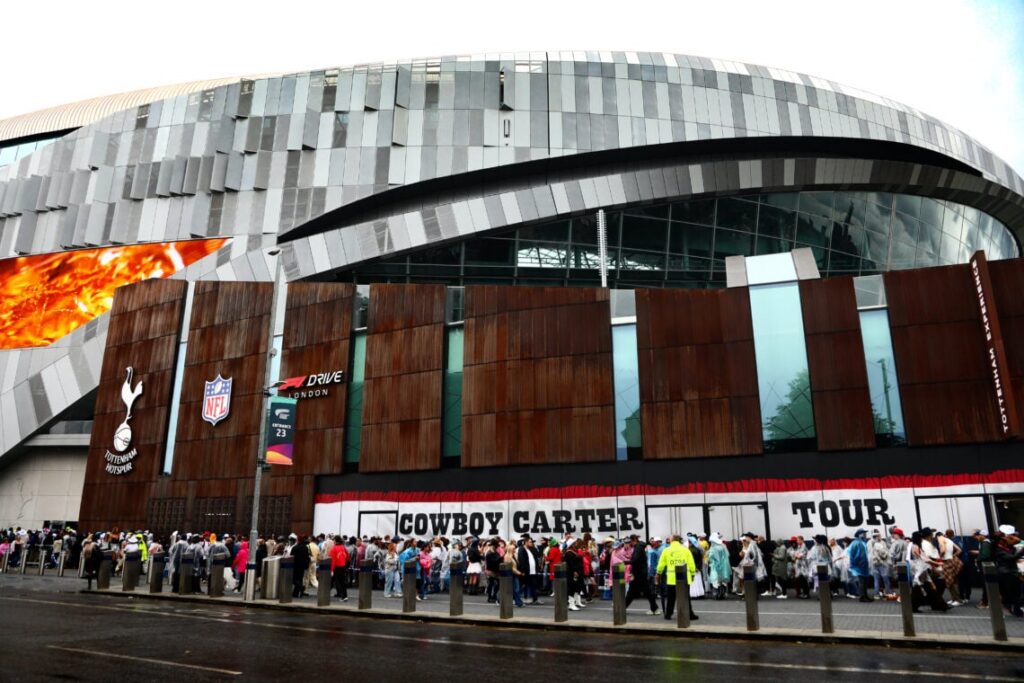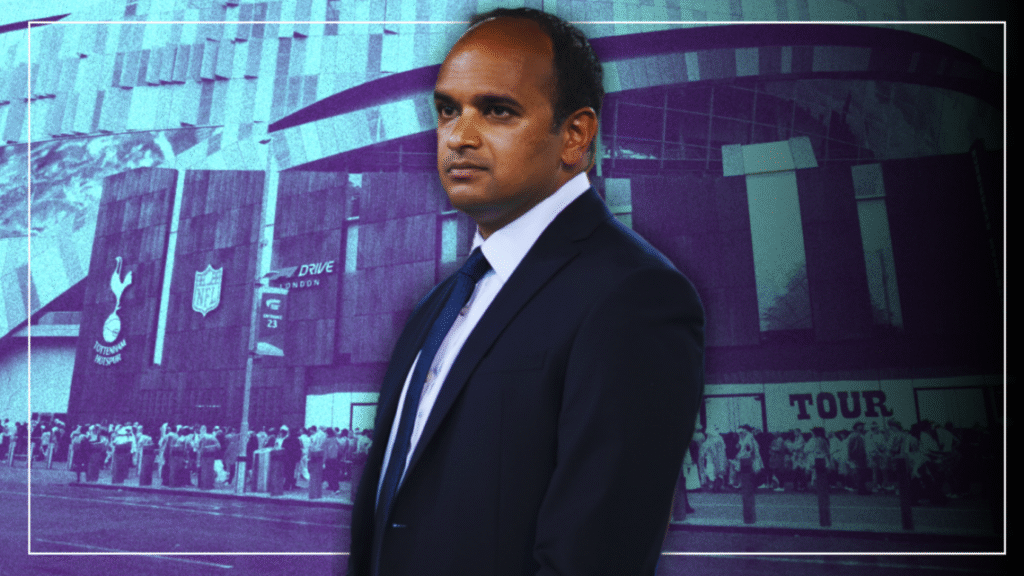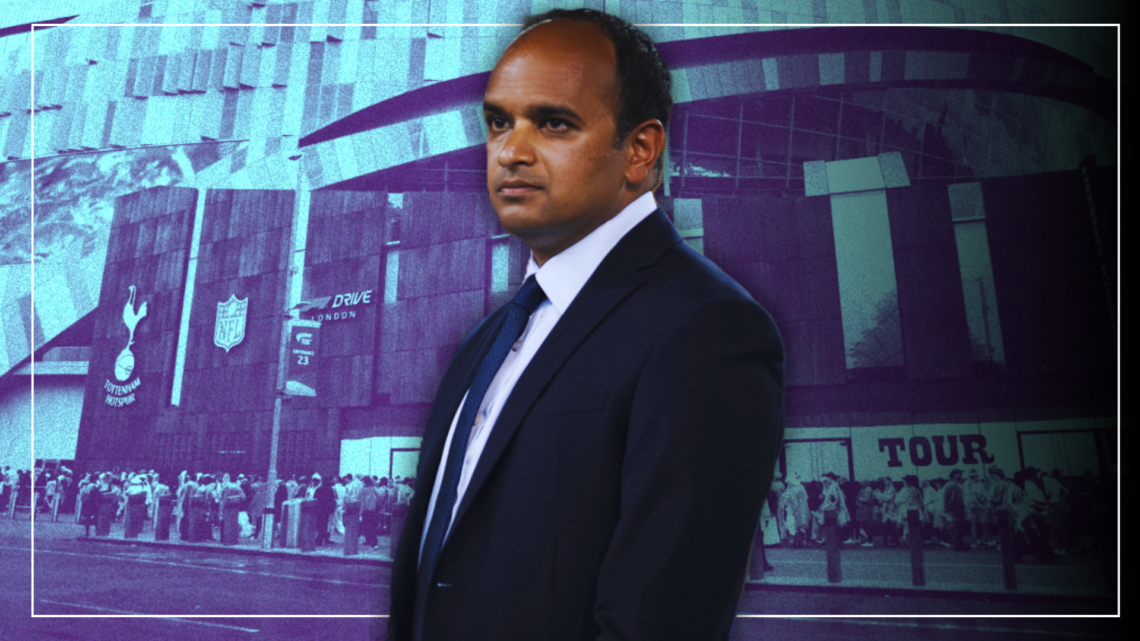Tottenham Hotspur have finally made a clear decision on their long-awaited stadium naming rights, marking an important step in the club’s ongoing commercial evolution.
Since opening the state-of-the-art Tottenham Hotspur Stadium in 2019, the club has been searching for a naming rights partner that matches the scale and prestige of its 62,850-seater home. Yet six years later, the ground still bears the club’s name, with no title sponsor in sight.
When the stadium was first unveiled, Daniel Levy then chairman of Tottenham had ambitious plans to secure an ultra-lucrative naming rights deal worth around £25 million per season.
But despite extensive negotiations with global brands, no agreement was ever reached. Now, with Levy having stepped down from his role as chairman earlier this year, the responsibility of driving commercial growth has passed to a new leadership team under Vinai Venkatesham and chief revenue officer Ryan Norys.
Tottenham’s ownership group, ENIC, has long followed a self-funding model, making missed commercial opportunities particularly costly.
Without a naming rights deal, the club has potentially lost out on hundreds of millions in revenue that could have been reinvested into new signings, wages, and infrastructure.
While Levy often defended his cautious approach claiming that aligning the Spurs brand with major cultural events such as NFL games, Beyoncé concerts, Formula 1, and boxing bouts with Anthony Joshua elevated the stadium’s profile many critics saw it as a cover for failed negotiations.

Hugo Hensley, Brand Finance’s valuation director, summed up the challenge earlier this year, asking, “There are lots of Beyoncé fans, but how many are looking for a Premier League club?”
His point highlighted the difficulty in finding a commercial partner that fits both the footballing identity and global image Tottenham wants to project.
Over the years, several major brands have come close to agreeing a deal, but talks consistently broke down in the final stages. However, progress has finally been made in recent months.
Just weeks after Levy’s exit, Tottenham announced a landmark partnership with Sports Illustrated Tickets. The 12-year deal makes the brand the first member of “The Collective,” a new commercial initiative designed to secure stand-specific sponsors across the stadium.
Sports Illustrated will sponsor the East Stand, complete with signage, hospitality activations, and other marketing integrations.
According to industry sources at SportBusiness, Spurs now plan to secure similar sponsorship agreements for all four stands within the next 18 to 24 months.

Once that process is complete, the club intends to revisit the possibility of selling full stadium naming rights. Ryan Norys explained that Tottenham are currently targeting potential partners in the consumer products, technology, and high-net-worth sectors.
“We’re identifying how we can authentically integrate brands into these spaces without taking away from the design or architecture,” Norys told SportBusiness. “You don’t want it to become a billboard.”
The new approach draws inspiration from the MetLife Stadium model in the United States, where a main naming rights deal coexists with four “gate partners” HCLTech, Verizon, Moody’s, and Bud Light.
This segmented sponsorship model has proven financially successful and is now serving as a blueprint for Tottenham’s next commercial phase.
Even without a full naming rights partner, Tottenham’s commercial success since moving into their new ground has been remarkable. Annual revenue from sponsorships, merchandise, and events has quadrupled compared to their final season at White Hart Lane, reaching around £255 million last year.
The stadium’s ability to host major sporting and entertainment events has played a major role in making Spurs one of the most financially powerful clubs in Europe.
However, not everyone in the sports business world is convinced that Tottenham’s segmented approach is the right move. Richard Busby, CEO of BDS Sponsorship, expressed some skepticism when speaking to TBR Football.
“Having a number of primary partners below a title sponsor is nothing new, but four is quite a low number,” Busby explained. “It’s normal to go for between six and eight and sometimes more.”
Busby, whose firm has previously worked on major deals including Coventry City’s stadium sponsorship and the Transport for London cable car partnership with Emirates, also warned of potential conflicts between sponsors.
“The problem will come if they are negotiating with primary sponsors in the consumer, tech, or high-net-worth sectors, as that will make it very difficult to get a stadium naming rights deal from any of those areas,” he said.
“Naming rights and primary sponsors will all expect category exclusivity. A cardinal rule of sponsorship is to sell the top of the pyramid first and then the primary sponsors afterwards.”
Despite these concerns, Tottenham’s leadership remains confident that this phased strategy will ultimately deliver the right deal.
By building a network of elite commercial partners first, Spurs hope to enhance the stadium’s brand value before securing a headline sponsor that matches their global ambitions.
After years of missed opportunities and near deals, Tottenham appear to finally be on a clear commercial path.
Whether this long-term strategy results in the lucrative naming rights deal the club has been chasing for nearly a decade remains to be seen, but one thing is certain the Spurs boardroom is determined to make the Tottenham Hotspur Stadium a global symbol of both sporting and commercial success.
